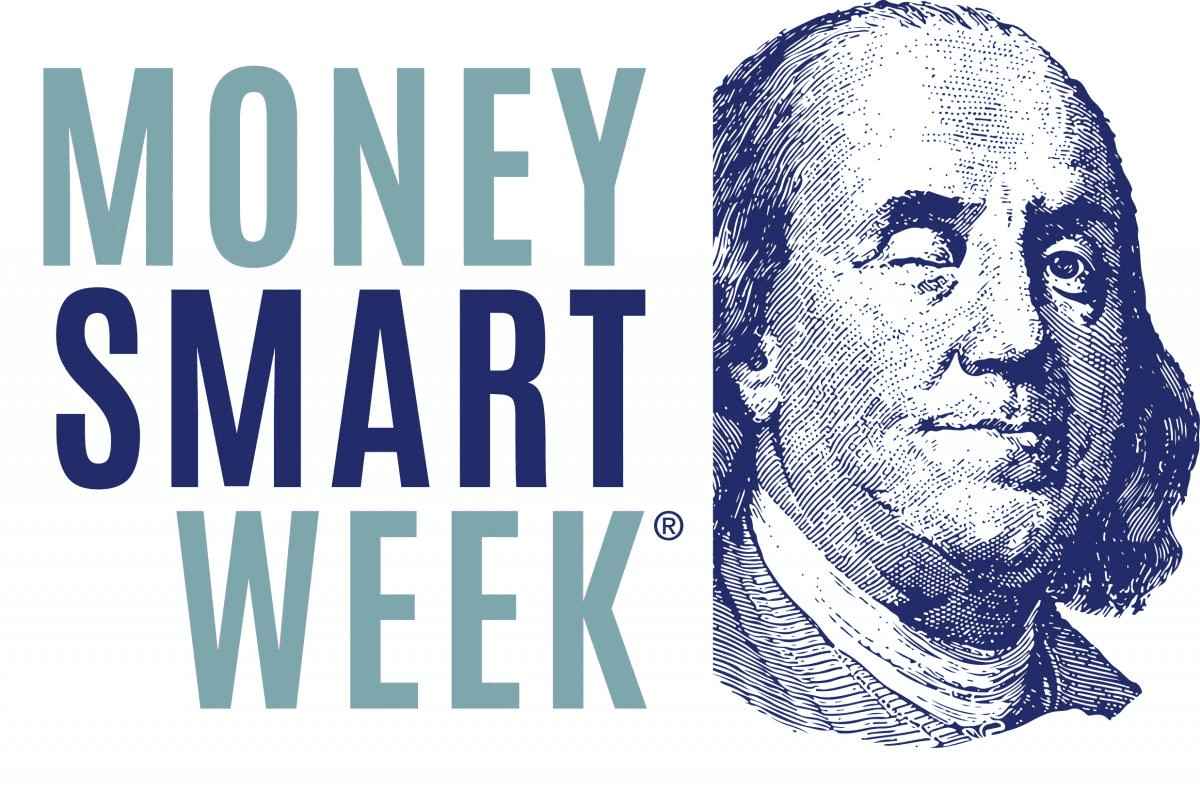Celebrate Money $mart Week in Your Library!

April 4–11 is Money Smart Week (MSW)! Co-sponsored and promoted by ALA and the Federal Reserve Bank of Chicago, this national campaign aims to help consumers manage their personal finances and develop financial literacy skills. Many libraries participate in this effort by promoting financial trainings and resources to students and the general public. It is also an opportunity to focus conversations and training on this important matter and how it relates to managing student debt and loans.
Here are some ideas to consider as you prepare for MSW in your library.
- Set up a resource display to showcase books, fliers, and handouts on topics like managing one’s finances, finding scholarships, paying for college tuition, and more. In addition to materials you’ll find on the MSW website, ALA co-promotes this event by providing numerous resources and ideas on their page. If your campus has food security services, be sure to promote that as well.
- Partner with your Career Development Centers and Financial Aid Office to host financial literacy workshops for first-year/incoming students, parents, international students, etc. They may greatly benefit from these learning opportunities, and the library can play an important role in fostering financial literacy skills. If you’re an FYE librarian, collaborate with your business librarian to promote these activities and register your events in the MSW website. Promote your events by encouraging teaching faculty to offer extra credits to students who attend these workshops.
- Create a Money Smart Week LibGuide for information about your library’s MSW events and recommended online resources related to financial literacy skills. Need more resources? The Consumer Financial Protection Bureau (CFPB) offers content and webinars on topics such as helping library patrons make financial decisions.
- Incorporate financial literacy into existing online information literacy instruction. ALA’s LibGuide on Financial Literacy in Public Libraries provides resources you can include in your own library workshops. Have students conduct research on student loan debts, socio-economic issues relating to identity theft, food security, food deserts, or the cost of textbooks at universities today. These social and economic issues may relate closely to students’ experiences and provide solutions for them to consider. Follow RUSA’s Financial Literacy Interest Group to get more information.
Still not sure where to begin? Visit the ALA’s website and sign up for the listserv on MSW to get updates on future library-related events, webinars, resources, and activities on MSW that you can incorporate in your library!
About the Authors
 Raymond Pun (he/him/his) is an academic/school librarian in the Bay Area, CA. Ray has written and published extensively in the library and information science field. He co-edited books including The First Year Experience Cookbook (ACRL Publications, 2017) and The Sustainable Library’s Cookbook (ACRL Publications, 2019). You can find him on Twitter @raypun101.
Raymond Pun (he/him/his) is an academic/school librarian in the Bay Area, CA. Ray has written and published extensively in the library and information science field. He co-edited books including The First Year Experience Cookbook (ACRL Publications, 2017) and The Sustainable Library’s Cookbook (ACRL Publications, 2019). You can find him on Twitter @raypun101.
 Hiromi Kubo is a Business and Economics Librarian at California State University, Fresno. She received her master’s degree in Library Science from the University of Missouri, Columbia. She served as a Reference and Instruction Librarian at Arkansas State University from 2004 until 2008. She offered information literacy courses and workshops in the areas of company and industry research, marketing, consumer behavior, market research, and economic data both at Arkansas State and Fresno State. Kubo is a member of the American Library Association (ALA) Business Reference and Services Section (BRASS) and the Special Libraries Association (SLA) Business and Finance Division. She was recognized with the SLA Achievement in Academic Business Librarianship Award in 2016.
Hiromi Kubo is a Business and Economics Librarian at California State University, Fresno. She received her master’s degree in Library Science from the University of Missouri, Columbia. She served as a Reference and Instruction Librarian at Arkansas State University from 2004 until 2008. She offered information literacy courses and workshops in the areas of company and industry research, marketing, consumer behavior, market research, and economic data both at Arkansas State and Fresno State. Kubo is a member of the American Library Association (ALA) Business Reference and Services Section (BRASS) and the Special Libraries Association (SLA) Business and Finance Division. She was recognized with the SLA Achievement in Academic Business Librarianship Award in 2016.